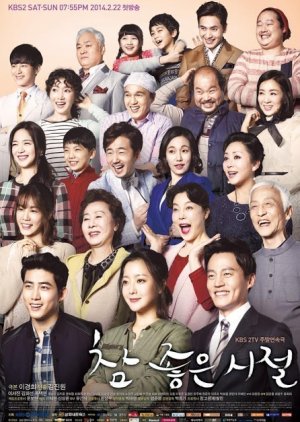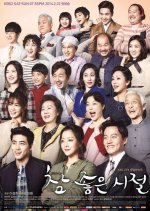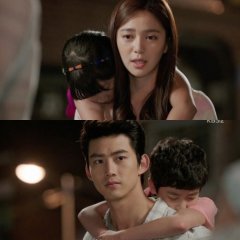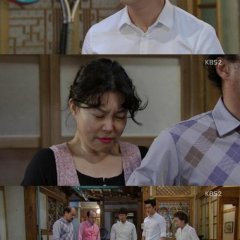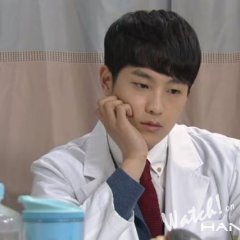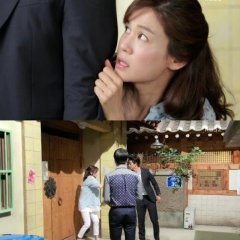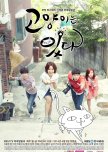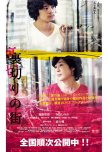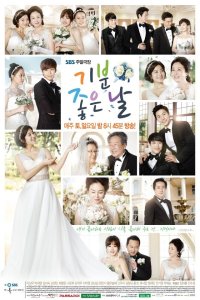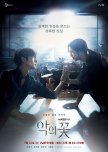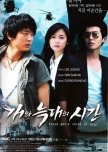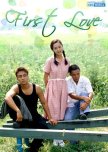 Kim Hee Sun offered leading role in webtoon based drama "Tomorrow"
Kim Hee Sun offered leading role in webtoon based drama "Tomorrow" - Italiano
- English
- magyar / magyar nyelv
- dansk
- Titolo Originale: 참 좋은 시절
- Conosciuto Anche Come: Good Years , Wonderful Season , Good Times Indeed , Very Good Times , Cham Joheun Shijul
- Sceneggiatore: Lee Kyung Hee
- Regista: Kim Jin Won
- Generi: Romantico, Drama
Cast & Ringraziamenti
- Lee Seo Jin Ruolo Principale
- Kim Hee Sun Ruolo Principale
- Ok Taec Yeon Ruolo Principale
- Yoon Yeo JungJang So Shim [Kang Family Matriarch]Ruolo Principale
- Yoon Yoo SunJo Young RanRuolo di Supporto
- Noh Kyung JooLee Myeong SoonRuolo di Supporto
Recensioni

unterwegsimkoreanischenD
31 persone hanno trovato utile questa recensione
If you´re only in it for the romance, than skip that one. This KDrama is actually so much more.
This is a family saga in cross-section. Typically, the list of the main actors only contains Lee Seo-jin, Kim Hee-sun and Ok Taecyeon. However, I think the whole family belongs here because family is the issue. Of course there is a romance (and not just one). However, sooner or later is always about family. And so "Wonderful Days" is the perfect KDrama to study family structures, dynamics and values as well as its impact on every day life in South Korean culture and tradition.Family hierarchies, manners, customs and traditions are presented in detail. The setting for this is fittingly the traditional hanok, in this case a giwajib, a dwelling for a middle-class family. In "Wonderful Days" you experience family as it would like to be and family as it really is, behind the facade - with all its taboos and lies and secrets and flaws. The issues of disability, adultery and flaws of single parents are dealt with. The questions of who is allowed to marry whom and what that means for family life are worked through. Finally, it is also about pride, guilt, shame, reconciliation, forgiveness and emancipation.
I think actress Youn Yuh-jung rocks the entire show. The processes she goes through again and again are numerous and moving. In some places, where she seems very traditional and her decisions seem virtuous in the service of the family, she also turns out to be truly modern. She always makes up for her lack of education with a lot of heart and common sense. She is already a strong mother model. But at the same time she shows herself vulnerable and conveys very vividly that this mother role demanded by society is practically superhumanly difficult and actually impossible to achieve.
With the action location of Gyeongju, you also get a tiny glimpse of the historic Silla city in south-east South Korea. The grave-mounds of the Silla Kings provide a scenic background more than once. The specific, comparatively melodic Busan dialect that is spoken in this region is also acoustically striking in the dialogues.
This family drama, in which everyone works through their own inner and outer struggles within themselves and the family, is told in a compassionate, vivid and multi-layered manner along numerous storylines through the entire family. Accordingly, this 50-episode KDrama has more episodes than usual. You can indeed learn to understand how the individual in South Korea holds back for the family, or what strength one has to muster in order to protect one's self-interest against the (supposed) well-being of the family, especially the elderly. Self-sacrifice and the ability to suffer are a given - as if it were the most natural thing in the world. However, they are sometimes subtly and sometimes openly questioned. The quarrel is conducted within the drama-family, but inevitably continues in OUR heads, hearts and personal worlds, too. Thus, it is a sensitive socio-critcal study and a sophisticated scenario, for confronting South Korean audience with traditional values facing modern life in 2014. Perhaps it is also interesting to know for non-Koreans (in order to understand some other dynamic of the story): adultery has only been unpunished in South Korea since 2015, abortion since 2017. Before that, it was a crime.
Sometimes the family dynamics are almost unbearable from a western point of view. They may also seem exaggerated as far as our (I am here refering to ´my´ western, german) reality is concerned. The decisions of the protagonists sometimes seem to be incomprehensible. But then again - as far as South Korea is concerned - this is not exaggerated at all. These dynamics are real (but in good makjang fashion, they also add a bit more drama for good catharsis effect). In any case, for Western viewers those dynamics are instructive for studying the culture-specific value systems and, last but not least: occasionally also thought-provoking, too.
Ah. Don´t let me forget to mention... it is about a love story, too. Not only one actually. But if you´re in it for only this romance, than skip that one. You will be busy fast-forwarding most of the time - because this KDrama is actually so much more...
Questa recensione ti è stata utile?

In Wonderful Days, a Seoul prosecutor, who is estranged from his family, reluctantly returns home to solve a murder case. Initially, with the aid of flashbacks, the drama delves into the cause of the prosecutor’s estrangement from his family, relegating the murder case on the back burner. The estrangement aspect is done so well, one almost forgets about the murder case which is actually very cleverly embedded in the developing events. The problem is that the murder case is resolved at around the drama’s midpoint, solely putting the burden on the estrangement aspect to carry the drama, to its end.
And here, Wonderful Days resorts to all sorts of convoluted complications to ratchet up the estrangement angle only to undermine the great job it had already done: What had been dramatic, funny, clever, and light becomes melodramatic, silly, tiresome, and heavy.
Of course, having already invested so much of my time in it, I had to see Wonderful Days to its end. And typical of K-Dramas it delivers. It delivers the sort of “feel good” send off to make up for the preoccupation with Han, the Korean culture specific conception denoting guilt, resentment, and resignation that most, if not all, K-Dramas exploit, for better or worse.
Questa recensione ti è stata utile?

